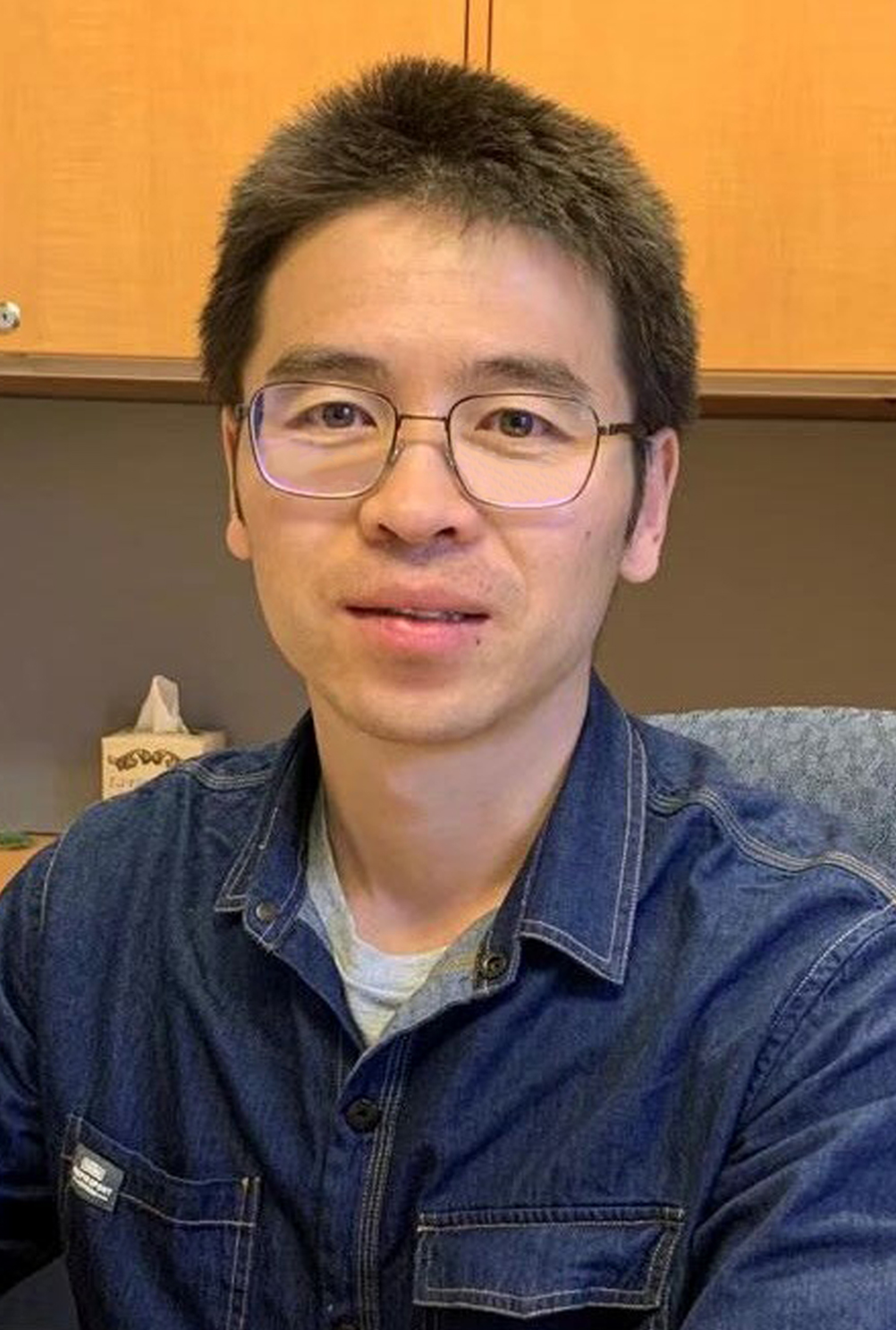
Dr. Baishan Hu, a research assistant professor in the Department of Physics and Astronomy and a member of the Cyclotron Institute at Texas A&M University, has been selected to receive the 2025 International Union of Pure and Applied Physics (IUPAP) Early Career Scientist Prize in Nuclear Physics in recognition of his exceptional achievements and future potential in nuclear physics.
Hu is one of three scientists worldwide honored with the prize, established in 2005 and awarded by the IUPAP Commission on Nuclear Physics to celebrate the contributions of early career physicists and recognize promising experimental or theoretical research in nuclear physics, including the advancement of a method, a procedure, a technique or a device that contributes in a significant way to nuclear physics research. Nuclear physics is one of 20 commissions representing the different subfields of physics within the IUPAP, which was founded in 1922 in Brussels to assist in the worldwide development of physics, foster international cooperation in physics and help in the application of physics toward solving problems of concern to humanity. Each prize consists of a certificate, medal and a monetary award.
Hu, whose focus is theoretical nuclear physics, joined the Texas A&M faculty in 2024 after earning his Ph.D. in nuclear physics from Peking University in China in 2017 and completing subsequent postdoctoral stints at Peking (2017-19), TRIUMF in Canada (2019-22) and Oak Ridge National Laboratory (2022-24). He is widely respected for his expertise in ab initio — a Latin phrase meaning “from the beginning” — nuclear theory and calculations of nuclear structure and reactions as well as his explorations of physics beyond the Standard Model of particle physics.
The IUPAP award is certainly among the most prestigious awards in nuclear physics for early career scientists worldwide. It highlights the scientific community’s recognition of the outstanding achievements of Dr. Hu in the area of nuclear structure calculations from first principles; i.e., ab initio.

Once every three years, up to three early career scientists from each commission earn the coveted prize, presented for nuclear physics by the IUPAP in conjunction with the International Nuclear Physics Conference (INPC), which also is organized by the IUPAP once every three years. Hu was celebrated along with his fellow 2025 recipients during the final day of the 29th INPC, held May 25-30 in Daejeon, Korea. Cyclotron Institute director Dr. Sherry J. Yennello and former Cyclotron Institute director Dr. Robert Tribble also attended the conference as IUPAP members (the Commission on Nuclear Physics and the International Cooperation in Nuclear Physics Working Group, respectively). Yennello also presented a plenary talk on workforce development in nuclear science.
Hu was cited by the IUPAP “for pioneering ab initio nuclear theories that extend precision calculations to heavy and strongly deformed nuclei — advancing our understanding of nuclear structure, dense nuclear matter and physics beyond the Standard Model.”
“I am very pleased to see the outstanding research of Dr. Hu recognized on an international level,” said Yennello, a distinguished professor and Regents Professor in the Department of Chemistry. “I am especially pleased that he is the second Cyclotron Institute faculty member to be honored with the IUPAP Early Career Scientist Prize, joining Dr. Rainer Fries, who was recognized with this award in 2007.”
In addition to ab initio calculations of atomic nuclei, Hu’s current research program spans related topics, including dark matter, neutrino physics, fundamental symmetries and nuclear astrophysics. He seeks to understand atomic nuclei through precise and uncertainty-controlled quantum many-body methods and to link ongoing developments of two- and three-body nuclear forces rooted in the strong-force theory of quantum chromodynamics (QCD) with nuclear structure by improving many-body methods, performing high-performance computing and exploring new nuclear phenomena. His work has the potential to reveal how visible matter formed and evolved and what dark matter is.
“The IUPAP award is certainly among the most prestigious awards in nuclear physics for early career scientists worldwide,” said Dr. Grigory V. Rogachev, professor and head of Texas A&M Physics and Astronomy. “It highlights the scientific community’s recognition of the outstanding achievements of Dr. Hu in the area of nuclear structure calculations from first principles; i.e., ab initio. It is exceptional news for the department and a testament to the strength of the nuclear physics program at Texas A&M University. This is the second IUPAP award held by the Texas A&M Physics and Astronomy faculty!”
Learn more about the IUPAP, which is the only international physics body organized and run by the physics community itself, or research within the Cyclotron Institute.